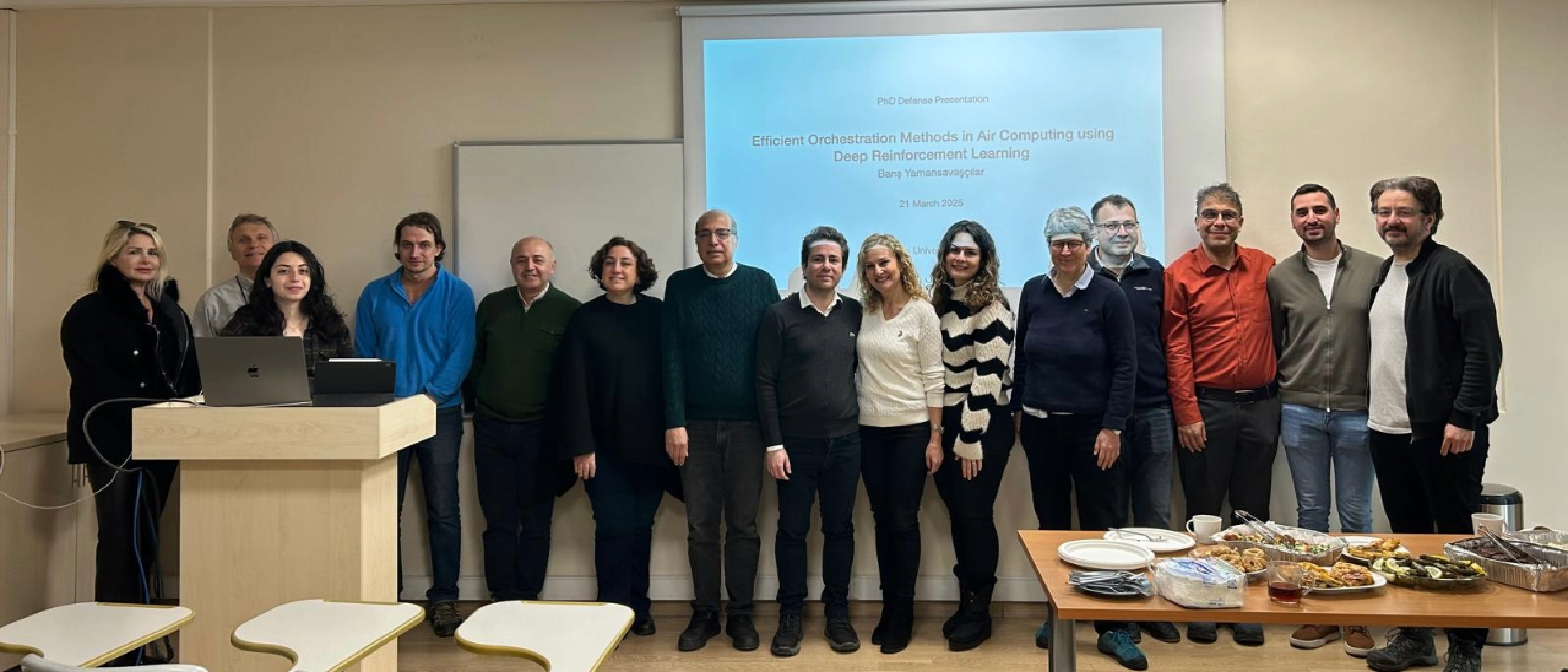Congratulations Dr. Barış Yamansavaşçılar
Last modified on February 8, 2026 • 2 min read • 246 wordsBarış Yamansavaşçılar has successfully defended his PhD thesis

Efficient Orchestration Methods in Air Computing Using Deep Reinforcement Learning
Abstract
After the proliferation of smart devices and diverse Internet of Things (IoT) requirements, we observe the dominance of cutting-edge applications with ever-increased user expectations in terms of mobility, pervasiveness, and real-time response. Over the years, to meet the requirements of those applications, cloud computing provides the necessary capacity for computation, while edge computing ensures low latency. However, these two essential solutions would be insufficient for next-generation applications due to the highly dynamic load. Therefore, we put forward a novel, next generation paradigm called air computing that presents a dynamic, responsive, and high-resolution 3D computation environment for all spectrum of applications. To this end, we first investigate efficient task orchestration through deep reinforcement learning (DRL) considering terrestrial resources via edge computing. Afterwards, to evaluate the corresponding air computing environments correctly, we design and develop our novel discrete event simulator, AirCompSim. Subsequently, we focus on the unknown user locations in an infrastructure-less environment in which users cannot connect to any communication device or computation-providing server, which is essential to task offloading in order to achieve the required quality of service. Thus, we propose a novel DRL-based scheme, DeepAir, which uses four main phases including sensing, localization, resource allocation, and multi-access edge computing. Performance evaluation results show that our DRL-based methods outperform the benchmark methods including heuristics and fuzzy logic. Thus, problems related to dynamic capacity enhancement and orchestration can be overcome in air computing environments.